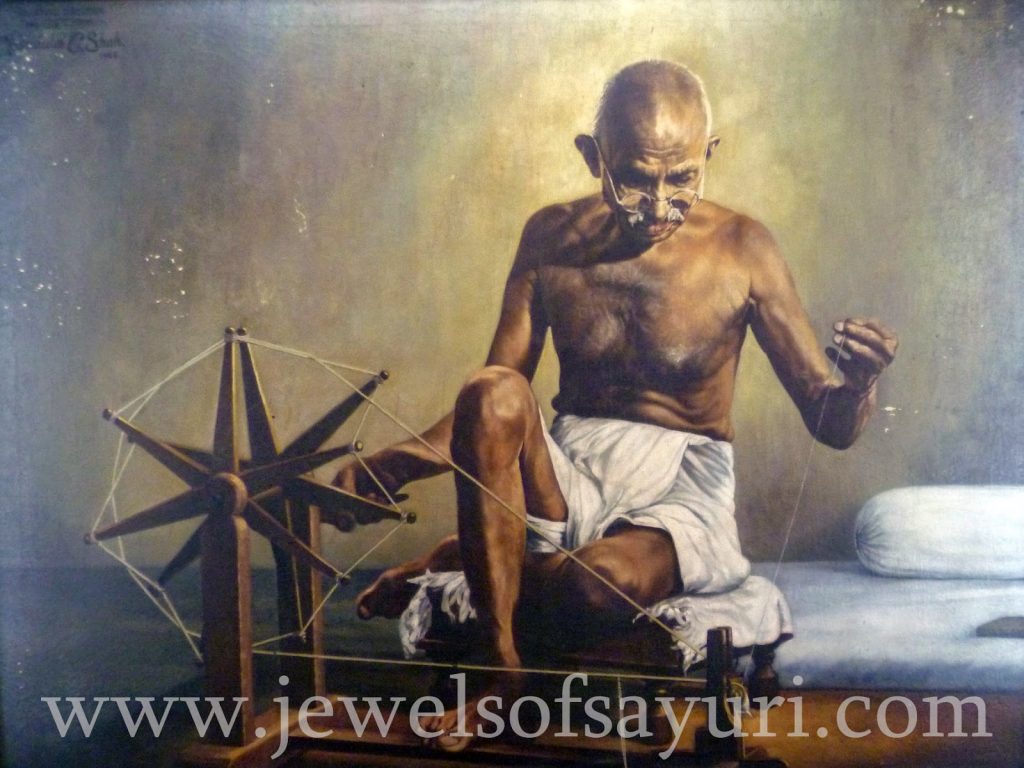I am neither a Gandhian nor a Gandhi fan, and I generally dont believe in many of his doctrines. But on my recent visit to Ahmedabad with my mother, we visited the Sabarmati Ashram and found myself quite drawn to a lot of things he said. Today being Gandhi Jayanthi, I thought of sharing those with you.

Before that, here is a brief history of the ashram
Gandhiji first created the Kochrab ashram else but a plague forced them to relocate. After carefully considering many sites is it said that he finally chose the present site in Ahmedabad for 3 reasons – Ease of communication as Gujatri was his native tongue, Growth of Khadi as Ahmedabad was the center of the handloom in early days, and finally to attract investment in Khadi from the wealthy who settled in the State’s capital.
The Ashram was built of 9 rules of pillars (Derived from Jainism) – education, truth (non-violence and love), celibacy, control of the palate (no liquor or meat), no stealing, non-possession (simple living high thinking), use of home-made articles, conquer of fear, and the eradication of untouchability.
Here are some quotes of his that really touched me.
This is his quote on Universalism and how people should live. It echoes a lot of my own thoughts on how my house or place of work should be. Hopefully I’ll break away my shackles and live this way soon.“I do not want my house to be walled in on all sides and my windows to be stuffed. I want the cultures of all lands to be blow about my house as freely as possible. But I refuse to be blown off my feet by any.”

The Talisman really surmises the entire Gandhian way of life. How many times in life we have been confused regarding the path to take to move forward? How many times we would have wondered “Am I doing this right?” Gandhi in his talisman offers a remedy for such confusion.


When asked what Khadi meant to him, he said that Khadi (to him) is the symbol of unity and the economic freedom and equality of Indians. He also felt that khadi was a way to realize the production and distribution of the necessities of life. He believed in a village based economy that would be incomplete without essential home based industries or normal industries such as soap making, match making, hand grinding and pounding. Khadi to him was not just a hand spun-handwoven cloth, it was much more than that.It was about self sustenance and self reliance – It was his craft to independence.

The Sabarmati Ashram has multiple galleries in an open welcoming setting with paintings, photograhs and memorabilia of the Mahatma.The Chronological listings were very interesting ot read and a walk across the gallery on the Freedom struggle taught me more about India’s struggle for independence more than all my school social studies and history lessons put together.


